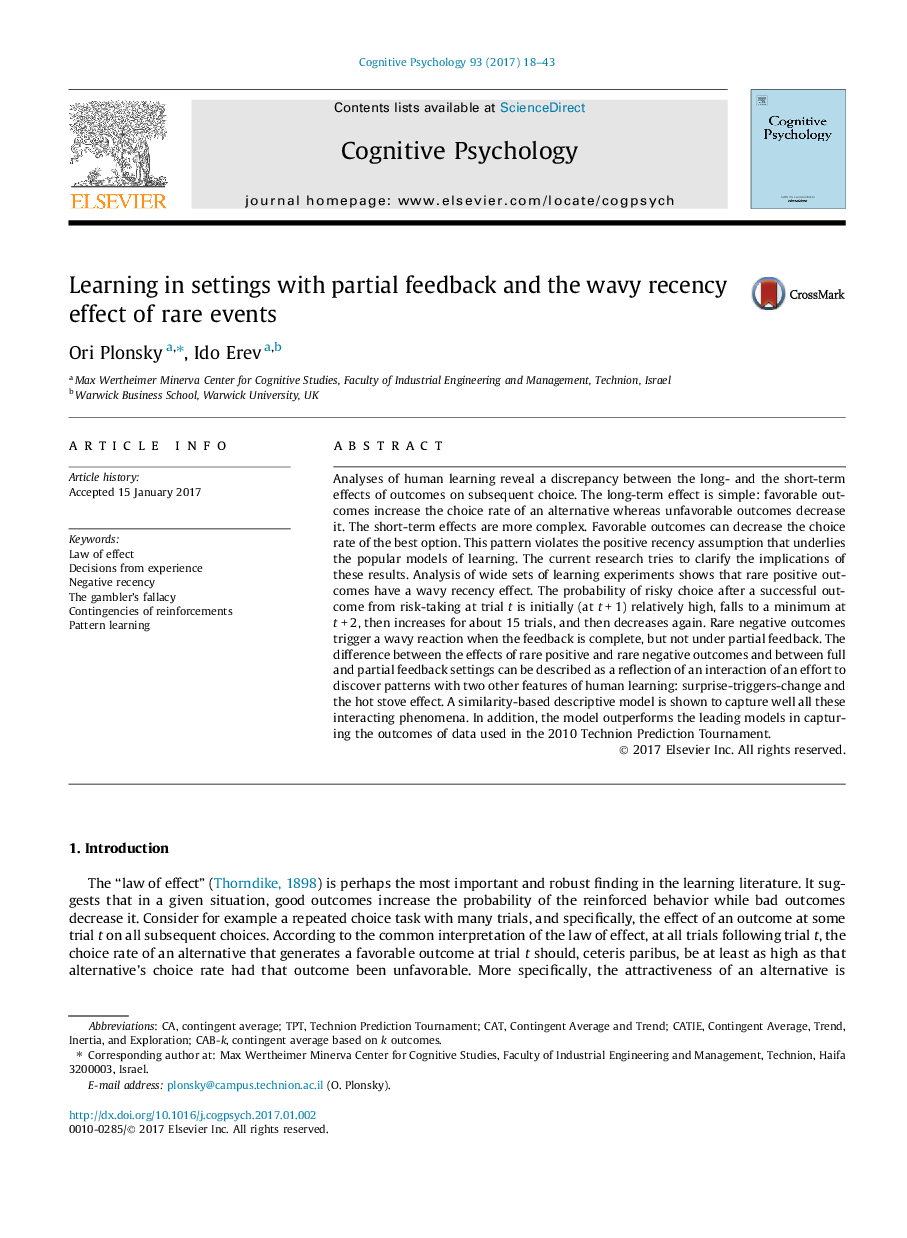| کد مقاله | کد نشریه | سال انتشار | مقاله انگلیسی | نسخه تمام متن |
|---|---|---|---|---|
| 5039697 | 1473371 | 2017 | 26 صفحه PDF | دانلود رایگان |
عنوان انگلیسی مقاله ISI
Learning in settings with partial feedback and the wavy recency effect of rare events
ترجمه فارسی عنوان
یادگیری در تنظیمات با بازخورد جزئی و اثر گذرا موجی از رویدادهای نادر است
دانلود مقاله + سفارش ترجمه
دانلود مقاله ISI انگلیسی
رایگان برای ایرانیان
کلمات کلیدی
موضوعات مرتبط
علوم زیستی و بیوفناوری
علم عصب شناسی
علوم اعصاب شناختی
چکیده انگلیسی
Analyses of human learning reveal a discrepancy between the long- and the short-term effects of outcomes on subsequent choice. The long-term effect is simple: favorable outcomes increase the choice rate of an alternative whereas unfavorable outcomes decrease it. The short-term effects are more complex. Favorable outcomes can decrease the choice rate of the best option. This pattern violates the positive recency assumption that underlies the popular models of learning. The current research tries to clarify the implications of these results. Analysis of wide sets of learning experiments shows that rare positive outcomes have a wavy recency effect. The probability of risky choice after a successful outcome from risk-taking at trial t is initially (at t + 1) relatively high, falls to a minimum at t + 2, then increases for about 15 trials, and then decreases again. Rare negative outcomes trigger a wavy reaction when the feedback is complete, but not under partial feedback. The difference between the effects of rare positive and rare negative outcomes and between full and partial feedback settings can be described as a reflection of an interaction of an effort to discover patterns with two other features of human learning: surprise-triggers-change and the hot stove effect. A similarity-based descriptive model is shown to capture well all these interacting phenomena. In addition, the model outperforms the leading models in capturing the outcomes of data used in the 2010 Technion Prediction Tournament.
ناشر
Database: Elsevier - ScienceDirect (ساینس دایرکت)
Journal: Cognitive Psychology - Volume 93, March 2017, Pages 18-43
Journal: Cognitive Psychology - Volume 93, March 2017, Pages 18-43
نویسندگان
Ori Plonsky, Ido Erev,
